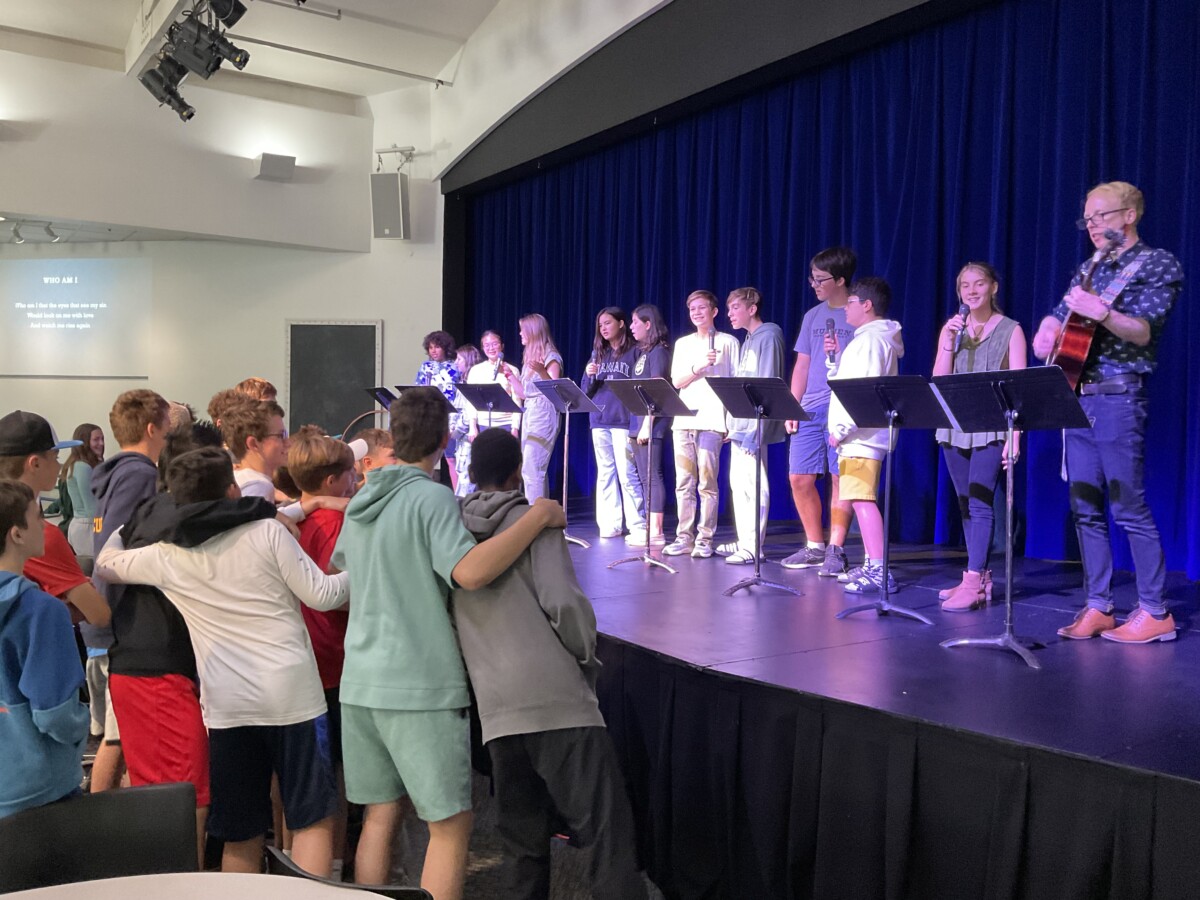
“Win or Fail Title Graphic,” digital image, Youth Ministry Media, accessed 04/18/2023, https://youthministry.store/product/win-or-fail/
Win or Fail:
Creating A Culture That Equips, Empowers, & Elevates Students
Win or Fail
Win or Fail is one of my favorite screen games to play with youth. This game plays a short video clip, then pauses, and the youth guess if it is a “win” by the goal being achieved or if it is a “fail” when the goal is not achieved. This game shows clips of students trying to jump over stacks of chairs, attempting trick shots on the basketball court, or doing other stunts. The student’s anticipation is palpable leading up to the screen, pausing before the outcome, and the reaction of the students when a fail happens is full of joy and laughter. As Christian educators, we can learn a lot about how to fail well as a community.
Failing Communally is not Easy
Though protocols are set up to equip students to have a positive outcome, sometimes students decide to go off script and disregard the partnering advice of adults that have spent time helping them prepare their messages. An example from my context is when a student chapel speaker delivered an old-fashioned fire and brimstone sermon based on Romans 3:23 that did not land well with the audience and negatively triggered the student body, faculty, and staff. Though discipled otherwise, the message “for all have sinned and fall short of the glory of God” was delivered accusingly, leaving the school feeling empty, worthless, and hopeless. This sermon offered the adult and student leaders an opportunity to discuss why this sermon landed the way it did in this community. As a school, we affirmed our values of a loving, nonviolent God. We also discussed how we need better teaching on sin, death, judgment, and eschatology. Another joyous moment from this awkward situation is the opportunity to disciple the student speaker. The student speaker felt terrible after hearing the feedback from the school. The student spoke from a place of wanting to be prophetic and save the school, but due to their theological and familial formation, the message came across as judgmental and cruel. This situation formed a passion for biblical interpretation and theological reflection in the situation’s aftermath. The student also experienced what communal grace and forgiveness feel like as students shared their feedback. Through this sermon, which was seen as a failure, the school became united, learned about some theological blind spots it has, and provided feedback to the student speaker who had good intentions but poor deliverance of their message. Through this experience, we all learned to fail together.
Failing communally is not easy, especially when discipling students. Not only do the leaders need to embrace failure, but the youth will need to learn how to fail gracefully. Every community must reflect on defining what failure is for the institution and why something is considered a failure. Is it a failure because it did it not live up to the image the institution wants to project to people outside the community? Is failure invoked to pass blame and judgment? Is failure caused by topics surfacing that the institution does not want to address? Overall, failure is an opportunity for growth and, when handled well, can bring unity to the community that fails well together.
During the practical research component of this project, I have had to defend the empowerment of students after a failure and ask adult leaders why they see this moment as a failure. I have found it is always a deeper issue that the failure illuminates to a community. As in my previous example of the student delivering a failed chapel message, the institution had to explore some theological blind spots. How a community embraces failure says a lot about their beliefs about God and the Christian faith. Teaching youth how to fail well individually and communally builds a resilient youth culture. The normalization of failure prepares young people to live faithfully even when they experience difficulties in life. When youth have a safe place to fail, they will succeed in knowing their identity is in Christ and not in successful pursuits. Normalizing failure in acknowledging how failure leads to opportunities for growth and grace-filled discussions helps youth take holy risks in their faith, knowing they have a genuinely supportive community. A community caught up in God’s story with them.
Failing Well
Back to our Win or Fail game. After playing Win or Fail with the youth, I point out how much fun it was to guess the outcome of the stunt, and when a fail happens, we all laugh communally and talk about how we would have done it differently to achieve the goal. I then ask the students, “How does it make you feel when you fail in life, and what is your definition of failure?” After having a discussion about failure, I reframe failure to be a positive thing that helps us continue to develop and form into the beloved Christian community of people we are becoming. To become an authentic, supportive community that encourages one another and builds each other up (1 Thessalonians 5:11), we must embrace failure together.
Failing Well Includes:
- Defining Failure: What is my definition of failure, and how does it compare to others?
- Reframing Failure: How do I grow as a person from this perceived failure?
- Normalizing Failure: How does failure make me feel? Share a story with youth about a time you remember failing.
- Encouraging Community: Why is this event defined as a failure? What does this say about our community? How do we fail well together?
Uplifting Community
Thinking theologically about community connects the life of a Christian institution to “God’s covenant with the people of Israel, to Jesus and his friends traveling together, to the first Christians who shared everything in common, and to all Christians practicing the way of Jesus Christ in a particular place and time since then.”[1] An intentional Christian community provides the freedom for students to solidify their identity in God’s narrative. This type of community empowers youth with the freedom to release themselves from the burdens of perfectionism and move forward in hope. This freedom helps youth discern their Christian vocation and live a hope-filled life of possibilities. “Community – as mutuality, as resilient and durable, as a source of identity, as instructive- could offer the place for nourishment and the condition for liveliness young adults rarely find in the environment of their culture.” [2] A community that equips, empowers, and elevates youth, allows youth to explore their giftings and vocation in a safe place to fail. Let’s fail well together!
*Did you like this blog post? This blog is an excerpt from my larger project titled: Culture Cultivating: Creating a Culture of Embodied Christian Education in Christian Schools and Churches that Equip, Empower, & Elevate Students.
[1] Baker, Dorie Grinenko. Greenhouses of Hope (Rowman & Littlefield, 2010), 199.
[2] Baker, Greenhouses of Hope, 201.






